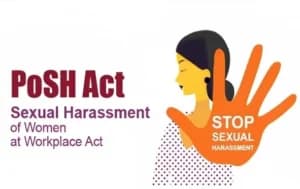In a major development that stirred both the legal and film circles in Kerala, the High Court on Friday quashed the ownership certificates issued to actor Mohanlal for possessing ivory, declaring them illegal and unenforceable. However, the Court left a narrow window open -allowing the State to issue a new certificate, provided it strictly follows the statutory route under the Wildlife Protection Act, 1972.
The decision came from a Division Bench comprising Justice A.K. Jayasankaran Nambiar and Justice Jobin Sebastian, which heard a set of public interest litigations challenging the government’s decision to regularise the actor’s possession of ivory tusks.
Background
The case has its roots in a 2012 incident when Income Tax officials raided Mohanlal’s Kochi residence and recovered two pairs of ivory. The actor reportedly did not have valid ownership documents at that time, prompting the Forest Department to book him under Section 50 of the Wildlife Protection Act for unlawful possession of ivory.
In 2016, the State Government’s Principal Chief Conservator of Forests (Wildlife) issued ownership certificates to Mohanlal, effectively regularising his possession. This move, however, soon drew sharp criticism and was alleged to be an act of favoritism. Two petitioners, James Mathew and Paulose, approached the High Court, arguing that such certificates were issued in violation of the law and possibly due to “corruption and collusion.”
Despite these challenges, the case lingered for years. In 2023, when the State sought to withdraw the prosecution, a Judicial Magistrate refused. That order was later set aside by the High Court, which asked the lower court to reconsider the matter.
Court’s Observations
While delivering the judgment, the Bench made it clear that the 2016 Government Orders and certificates could not stand legal scrutiny. “These orders are void and the certificates issued on their basis are illegal and unenforceable,” the Court observed.
The judges further stated that any exercise of discretion under Section 44 of the Wildlife Protection Act must adhere to statutory safeguards, ensuring there is no misuse of power. Interestingly, the Court consciously avoided commenting on whether the issuance of the certificates involved corrupt practices, noting that any such finding could influence the ongoing criminal proceedings against the actor.
“The bench observed, ‘We refrain from making observations that may prejudice the accused in the pending prosecution. However, the State cannot justify the issuance of these certificates outside the statutory framework.’”
The Court also emphasized that no individual, regardless of stature or public image, can claim immunity from compliance with wildlife protection laws.
Decision
In conclusion, the Kerala High Court struck down the ownership certificates issued to Mohanlal on January 16, 2016, and April 6, 2016, terming them “void ab initio.” The bench, however, added a crucial caveat - the State Government may issue a fresh ownership certificate to the actor if it follows the proper statutory process under Section 44 of the Act.
The Court thus balanced legality with fairness, ensuring that while the actor is not granted undue benefit, his rights under law are not extinguished either.
Case Title: James Mathew v. State of Kerala (WP(C) 27187/2019) and Paulose v. Mohanlal (WP(C) 11074/2019)
Date of Judgment: October 24, 2025















